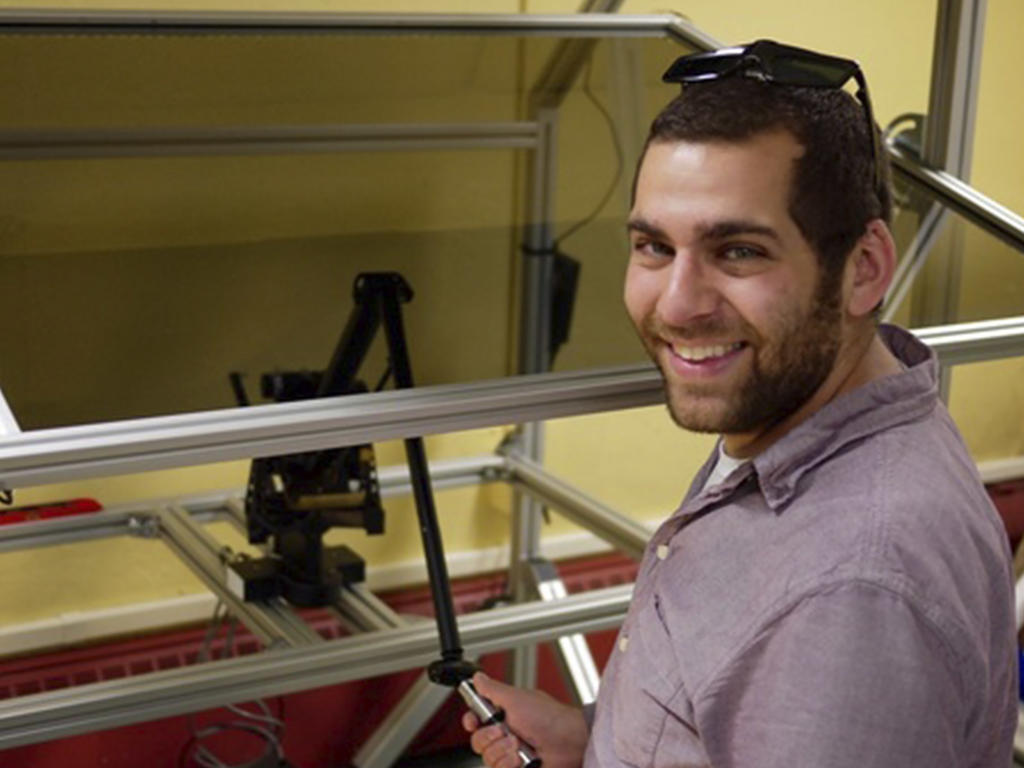Rhodes College researchers have been awarded a prestigious National Science Foundation (NSF) grant of $267,970 to study brain activity involved in body movement using 3D motion capture technology.
This NSF Major Research Instrumentation Award will allow Rhodes to acquire a state-of-the-art motion capture system that will be used collaboratively across programs and departments such as psychology, neuroscience, computer science, and others.
Dr. Dan Blustein, assistant professor of psychology, is principal investigator, and Dr. Betsy Sanders, associate professor of computer science, and Dr. Katherine White, professor of psychology, are co-principal investigators for the project, which is titled “MRI: Acquisition of a Movement Tracking System to Explore Embodiment and Cognition.”
“This equipment is going to put Rhodes College on the map as a serious contributor in the movement science research space. We are really excited about the diversity of projects we have planned, and about getting students from all over the college involved,” says Blustein.
Motion capture technology can, for example, record the movements of dancers and athletes wearing trackers and provide data to improve performance or even prevent injuries. In entertainment, the technology—combined with virtual reality and other software—has been used to create characters in animation and gaming programs. Neuroscientists use the technology to study how brain activity drives the movement of joints and muscles.
Blustein studies how people learn, plan, and control movements, with a focus on what happens to the nervous system following disruptions such as limb amputation or stroke. His research drives the development of new robot technologies, neurorehabilitation techniques, and advanced prosthetic systems.
“With the new system, we will be able to precisely track body movements, even finger and facial movement, while at the same time measuring brain activity, giving insight into cognitive processes and attentional demands,” explains Blustein.
Sanders will use the equipment to explore perceptual processes and locomotory strategies in virtual environments. White will explore how the gestures people make during speech convey meaning and affect listener comprehension.
“This equipment will enable truly interdisciplinary work,” says Blustein. “To mention just a few examples involving Rhodes faculty, Karl Erickson will develop bio-inspired animations, and Dr. Ross Sowell will precisely track robots in complex environments to study human trust of robots. In addition, Dr. Kelly Weeks will study how virtual reality tools can train employees to recognize biases and shift prejudiced attitudes that affect business decisions. We hope others reach out to engage with the cutting-edge equipment!”
The equipment will support numerous independent student projects and class projects in neuroscience, psychology, and computer science courses. “Students will gain valuable research experience using cutting-edge technology, helping prepare them for graduate school or a variety of careers including in rehabilitation, sports medicine, computer animation, and software development,” says Blustein. “The research proposed in this grant highlights Rhodes as an institution that deeply values how undergraduate research contributes to science.”
